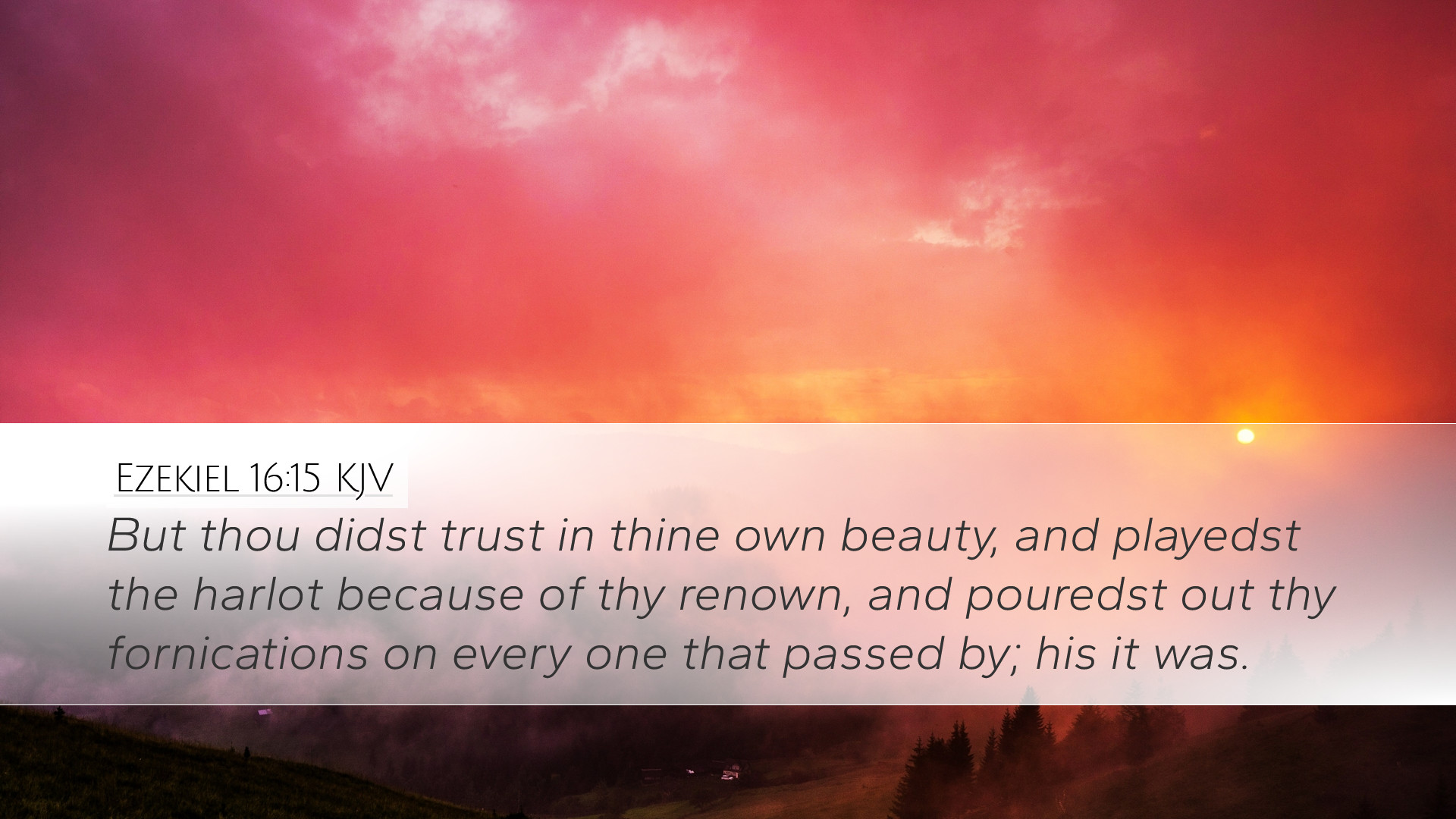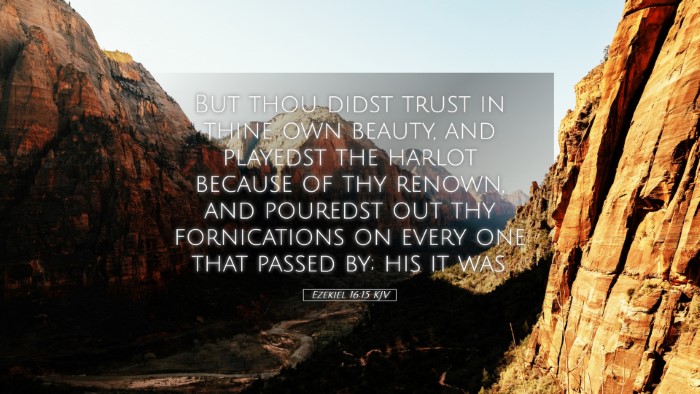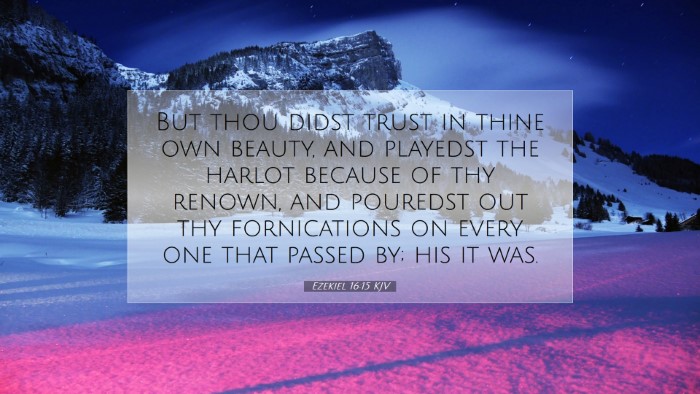Old Testament
Genesis Exodus Leviticus Numbers Deuteronomy Joshua Judges Ruth 1 Samuel 2 Samuel 1 Kings 2 Kings 1 Chronicles 2 Chronicles Ezra Nehemiah Esther Job Psalms Proverbs Ecclesiastes Song of Solomon Isaiah Jeremiah Lamentations Ezekiel Daniel Hosea Joel Amos Obadiah Jonah Micah Nahum Habakkuk Zephaniah Haggai Zechariah MalachiChapter
Ezekiel 1 Ezekiel 2 Ezekiel 3 Ezekiel 4 Ezekiel 5 Ezekiel 6 Ezekiel 7 Ezekiel 8 Ezekiel 9 Ezekiel 10 Ezekiel 11 Ezekiel 12 Ezekiel 13 Ezekiel 14 Ezekiel 15 Ezekiel 16 Ezekiel 17 Ezekiel 18 Ezekiel 19 Ezekiel 20 Ezekiel 21 Ezekiel 22 Ezekiel 23 Ezekiel 24 Ezekiel 25 Ezekiel 26 Ezekiel 27 Ezekiel 28 Ezekiel 29 Ezekiel 30 Ezekiel 31 Ezekiel 32 Ezekiel 33 Ezekiel 34 Ezekiel 35 Ezekiel 36 Ezekiel 37 Ezekiel 38 Ezekiel 39 Ezekiel 40 Ezekiel 41 Ezekiel 42 Ezekiel 43 Ezekiel 44 Ezekiel 45 Ezekiel 46 Ezekiel 47 Ezekiel 48Verse
Ezekiel 16:1 Ezekiel 16:2 Ezekiel 16:3 Ezekiel 16:4 Ezekiel 16:5 Ezekiel 16:6 Ezekiel 16:7 Ezekiel 16:8 Ezekiel 16:9 Ezekiel 16:10 Ezekiel 16:11 Ezekiel 16:12 Ezekiel 16:13 Ezekiel 16:14 Ezekiel 16:15 Ezekiel 16:16 Ezekiel 16:17 Ezekiel 16:18 Ezekiel 16:19 Ezekiel 16:20 Ezekiel 16:21 Ezekiel 16:22 Ezekiel 16:23 Ezekiel 16:24 Ezekiel 16:25 Ezekiel 16:26 Ezekiel 16:27 Ezekiel 16:28 Ezekiel 16:29 Ezekiel 16:30 Ezekiel 16:31 Ezekiel 16:32 Ezekiel 16:33 Ezekiel 16:34 Ezekiel 16:35 Ezekiel 16:36 Ezekiel 16:37 Ezekiel 16:38 Ezekiel 16:39 Ezekiel 16:40 Ezekiel 16:41 Ezekiel 16:42 Ezekiel 16:43 Ezekiel 16:44 Ezekiel 16:45 Ezekiel 16:46 Ezekiel 16:47 Ezekiel 16:48 Ezekiel 16:49 Ezekiel 16:50 Ezekiel 16:51 Ezekiel 16:52 Ezekiel 16:53 Ezekiel 16:54 Ezekiel 16:55 Ezekiel 16:56 Ezekiel 16:57 Ezekiel 16:58 Ezekiel 16:59 Ezekiel 16:60 Ezekiel 16:61 Ezekiel 16:62 Ezekiel 16:63

